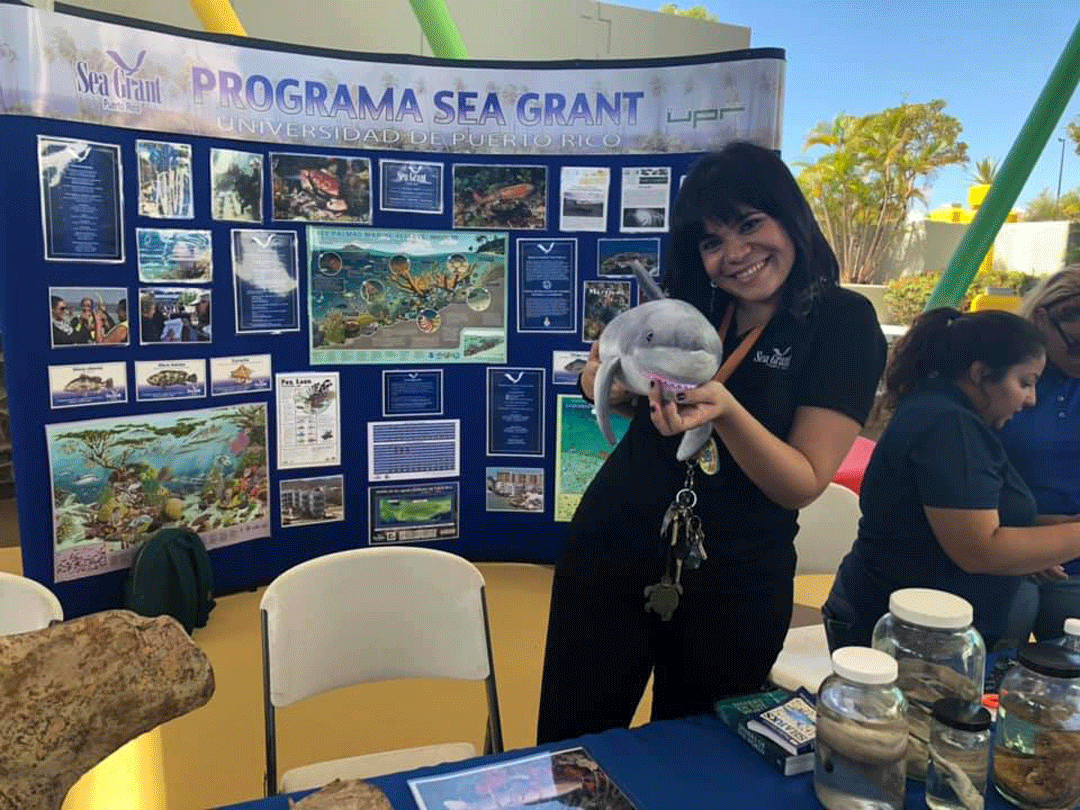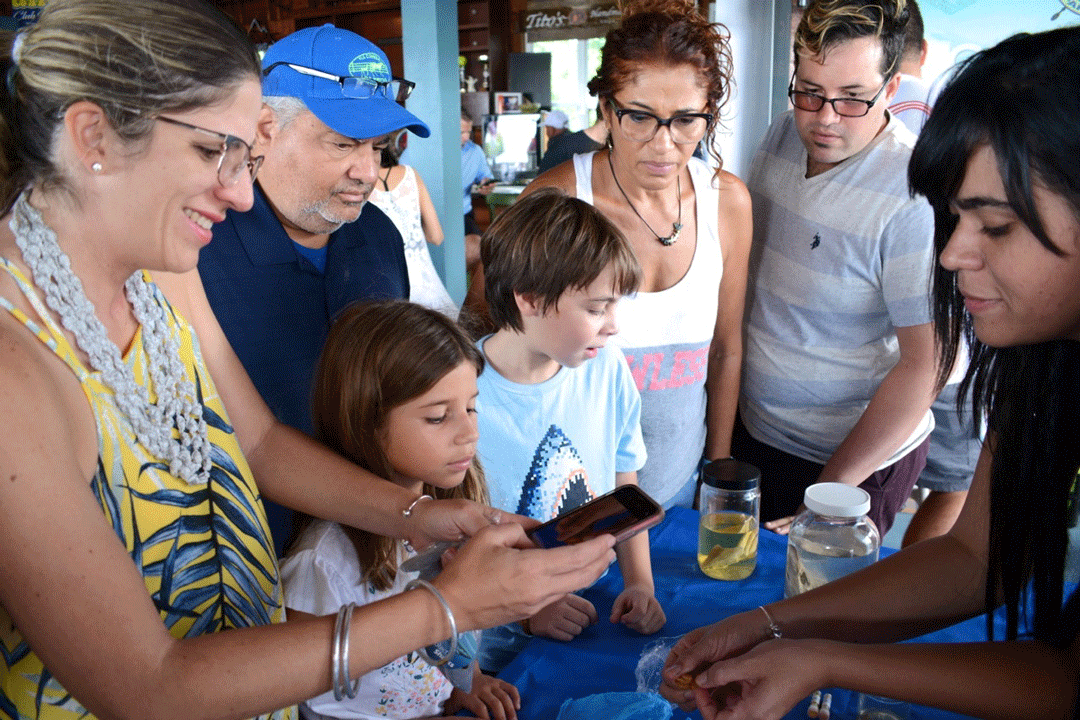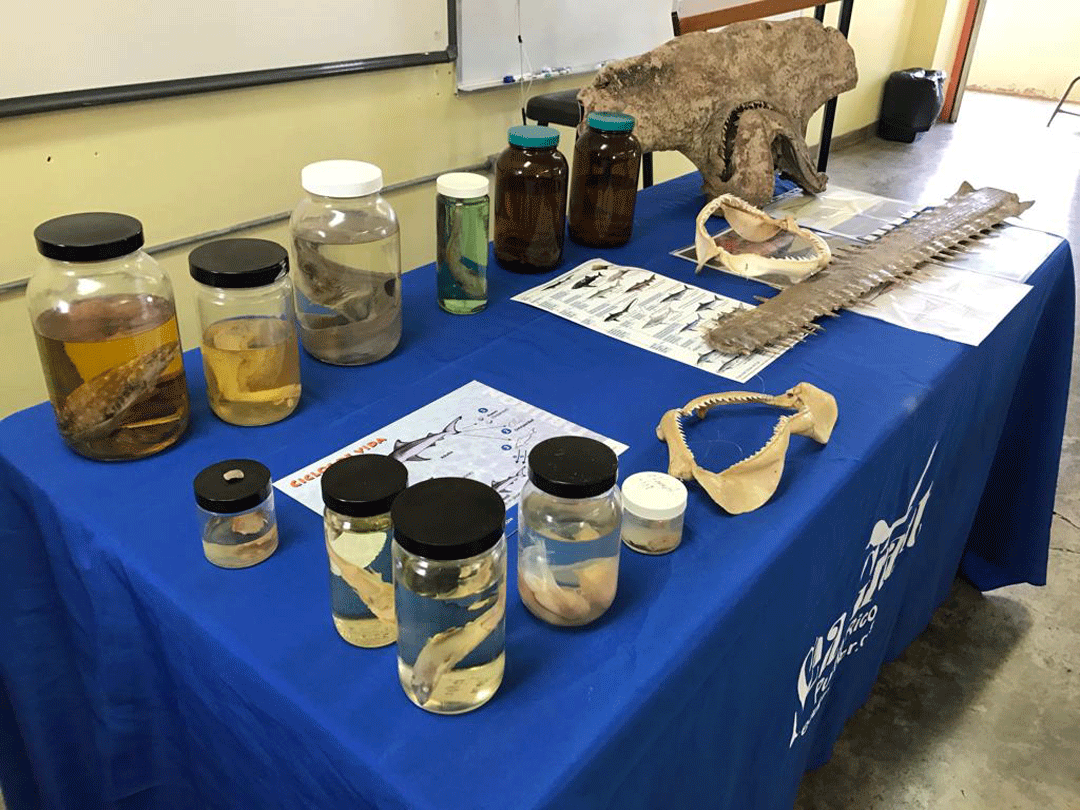My role in outreach with shark conservation in Puerto Rico
Puerto Rico is a Caribbean island that hosts a great diversity of animals and plants culminating in a rich abundance of natural resources. Our island resources are important for our livelihood so appropriate action should be taken to conserve and protect these resources. The best way to become involved in island conservation is by sharing information about which factors are affecting the environment and how we can help in order to protect and preserve the resources that surround us. This is the primary reason why I began to offer educational talks to the general public.

Outreach in Marine Science Day at Interamericana Puerto Rico. Photo © Khrystall Ramos
It was in 2015 when I took the initiative in visiting local elementary and high schools to talk about endangered species that live on our island, as well as the importance of recycling and maintaining clean beaches. After I was admitted to the Master of Science program in the Department of Marine Sciences at the University of Puerto Rico in Mayagüez, I joined the department’s student association “Asociación de Estudiantes de Ciencias Marinas” (AECiMa) where I started educating a wider audience about coastal ecosystems. But it wasn’t until 2017 that I began promoting the importance of sharks in marine ecosystems.

Outreach, here Glorimar Franqui is talking about the diversity of shark to elementary students.
In Puerto Rico, there is a lack of information about the actual status of shark populations. Because of this, I started encouraging the conservation of these species, along with my colleague Wanda Ortiz, through information tables at educational events and indirect outreach. With the help of these tools, we’ve taught about shark evolution through time, their distinct anatomical characteristics, species that are found in our waters, their ecological importance, and ideas that can be implemented to help these populations increase to healthy numbers.

Talking about the importance of shark in the ecosystem – Lajas, Puerto Rico. Photo © Efrain Figueroa
Puerto Ricans often have a negative perspective of sharks, so in order to change that mindset, we must start with the introduction of their importance and the role that sharks have in maintaining a marine ecosystem’s health. As an island, the majority of the Puerto Rican population is concentrated near the coast. Sometimes fear, due to lack of knowledge, is used as an excuse for capturing and killing sharks. My goal as a researcher is to change that opinion through education and so far I feel that I am on the right track to encouraging and promoting shark conservation in Puerto Rico.

Glorimar Franqui and Wanda Ortis, talking about the different organs and the function in Shark Talk Puerto Rico. Photo © Efrain Figueroa

Table with shark species for outreach for schools. Photo © Glorimar Franqui
